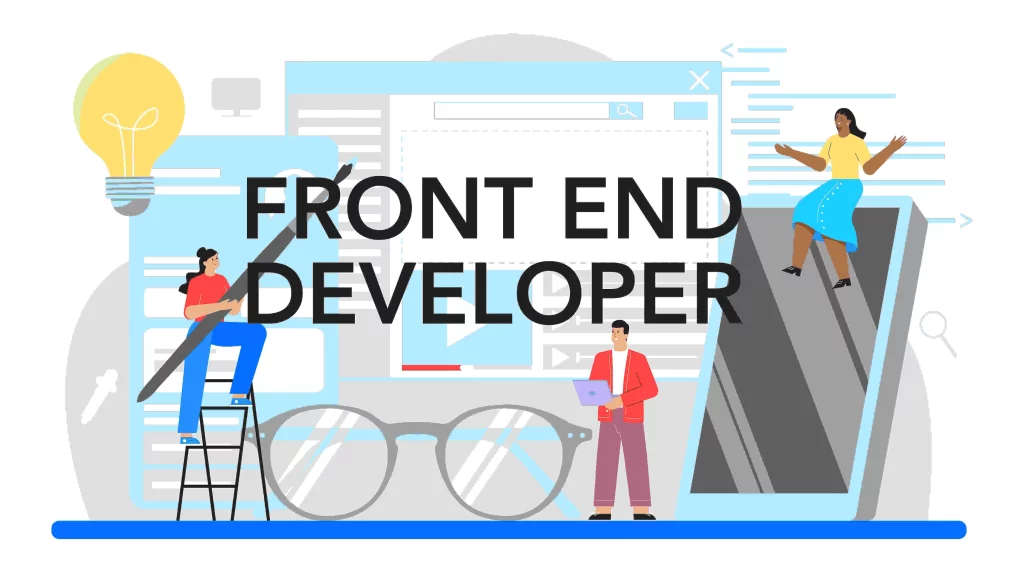
-
Apexlink
Real Estate
-
DLS
General Insurance
-
DMV
Government
-
Entiger
Fintech
-
GIS Mapping
Gas & Petroleum
-
HMS
Employee Benefit
-
HAWA
Government
-
Harley
Community
-
IHG
Hotel & Tourism
-
Sparkseeker
Humane Tech
-
Track Ninja
Sports
-
Response Vision
Disaster Management
- AI/ML Services
- Application Services
- Automation Services
- Cyber Security
- Chatbot Experts
- Data Analysis
- Data Warehouse Services
- Digital Commerce Services
- Digital Transformation
- Infrastructure Service
- Low Code/No Code
- Managed IT Services
- IT Support
- IT Consulting
- IT Outsourcing
- Mobile App Development
- IOS Development
- Android Development
- Cross Platform Development
- Gaming App Development
- Software Development
- System Design & Architecture
- Testing Services
- Web Development
Introduction
The right set of resources and tools for the project can make the process smoother and more efficient. It also enables the development of a product that meets your expectations. The web development frameworks work in the same vein.
The web development landscape is only expanding with the times. With billions of users using online solutions to interact with the various businesses in the world, web development frameworks will only see a rise in use as time progresses.
In this blog, we are covering the basics of web frameworks and how these tools of modern development can help you reach your goals faster.
What Are Web Development Frameworks?

Web development frameworks are sets of tools and resources to assist software development services providers in building and managing web applications, services, and websites. Additionally, these tools can help with the development of application programming interfaces (APIs).
Several of the web frameworks offer libraries for database access, templating frameworks, and session management. Furthermore, they promote code reuse. These frameworks are often used for dynamic website development, but they can also work well for static websites.
These tools are ideal for both businesses as well as developers as they save both time and effort, leading to more affordable development for the clients.
These web development frameworks can help save anywhere between 30% to 50% on development cost due to improved efficiency.
How Do Web Development Frameworks Ease Web Development Services?
The website development services benefit from the frameworks in the following ways:
- Better performance
- Reduced Errors
- Faster Development
- Improved Reliability and Security
Types of Web Development Frameworks for Website Development Services
Broadly speaking, there are two types of web development frameworks that developers can use.
Front-end Web Development Framework

These frameworks assist with the design of front-end development and are usually based on JavaScript, HTML, and CSS. The front-end frameworks are focused on UI/UX design and other elements like SEO, code snippets, user interaction management, templates, and much more.
Backend Web Development Framework

Software development companies rely on backend web development frameworks based on languages like Python, .NET, Java, and PHP. These are ideal for dealing with database and server functioning, solution logic and architecture, routing protocols, data security, and more.
Front-End VS. Back-End Development Frameworks
| Front-End Frameworks | Back-End Frameworks | |
| Features | Reusable templates, UI/UX Designing, Performance and Scalability Enhancement | Server handling, database management, designing site architecture, security, URL routing |
| Offers | Pre-written code snippets, reusable templates, integration elements | Privacy encryptions, user authorization, database manipulation, and reusable components |
| Frameworks | Vue, React, Angular | Django, ASP.NET Core |
| Languages | HTML, CSS, and more | Python, JavaScript, .Net and more |
Popular Web Development Frameworks
Web development frameworks provide a structured way to build and maintain web applications. Software development companies use them to get a collection of pre-written to save time and effort.
Some prevalent web development frameworks include:
React

React web development framework
React is among the JavaScript libraries created for building user interfaces. Maintained by Facebook, it is one of the most popular front-end frameworks in the world. React is known for its component-based architecture and its ability to create reusable code.
Pros:
- Component-based architecture, making it easy to create reusable code
- Virtual DOM makes it fast and performant
- Large community and ecosystem
Cons:
- Can be difficult to learn
- Can be overused
- Not as well-suited for server-side rendering
Angular

Angular web development framework
It is a TypeScript-based open-source web application framework. Angular is a comprehensive framework that includes a wide range of features, such as routing, dependency injection, and data binding.
Pros:
- Comprehensive framework with a wide range of features
- TypeScript-based, which makes it more type-safe than JavaScript
- Strong community and support
Cons:
- Steep learning curve
- Can be slow and performance-hungry
- Not as flexible as some other frameworks
Vue.js

Vue.js web development framework
Vue.js is a progressive JavaScript-development framework ideal for building user interfaces. It is a lightweight and flexible framework that the developers can learn easily. Vue.js is also very performant and can be used to build a wide variety of applications.
Pros:
- Lightweight and easy to learn
- Performant and scalable
- Flexible and can be used with a variety of tools
Cons:
- Smaller community than some other frameworks
- Not as well-suited for large enterprise applications
- Not as mature as some other frameworks
Express.js
Express.js web development framework
Express.js is a minimal and flexible Node.js development web application framework. One of the most popular back-end frameworks in the world, Express.js is known for its simplicity and its ability to be used to build a wide variety of applications.
Pros:
- Minimal and easy to learn
- Flexible and can be used with a variety of tools
- Large community and ecosystem
Cons:
- Not as opinionated as some other frameworks
- Can be difficult to debug
- Not as well-suited for large enterprise applications
Django
Django web development framework
Django is a high-level Python web framework for quick development and clean, pragmatic design. It is the ideal tool to simplify the creation of complex, database-driven websites.
Pros:
- Rapid development
- Clean, pragmatic design
- Simple and easy to learn
- Large community and ecosystem
Cons:
- Not as performant as some other frameworks
- Can be overused
- Not as well-suited for small, simple applications
Laravel
Laravel web development framework
Laravel is a PHP-development framework for web applications. It is known for its expressive syntax and its large community of developers. Laravel is a popular choice for building enterprise applications.
Pros:
- Expressive syntax
- Large community and ecosystem
Cons:
- Can be difficult to learn
- Not as flexible as some other frameworks
- Not as well-suited for small, simple applications
ASP.NET Core
ASP.NET Core web development framework
ASP.NET Core is a cross-platform, high-performance web framework for building modern web applications with .NET development. It's a modular and lightweight framework, making it easy to learn and use.
Pros:
- Cross-platform
- High-performance
- Modular and lightweight
Cons:
- Not as well-suited for small, simple applications
- Can be difficult to debug
- Not as well-supported as some other frameworks
Choosing the Right Web Development Framework for Your Project
When it comes to choosing the right framework to ensure optimum software development services, there are a few considerations to keep in mind.
A. Considerations for Consumers
- User-friendly interfaces:
The frameworks in web development should be easy to understand and use. It will help reduce the time it takes to get the product up and running. Additionally, it will lower the time and money it takes to train the new team. Furthermore, the selected frameworks for web development should have pre-built components and templates. Lastly, it should support various development tools and plugins to offer users better flexibility.
- Community support and resources:
The best framework for web development is one with a huge amount of community support and resources. This addition can offer a wealth of knowledge through online forms, tutorials, and documentation. Commercial support for the framework is also essential as it can offer peace of mind for organizations working with the tools. Lastly, a well-documented framework will save you time on debugging and troubleshooting.
- Scalability and futureproofing:
The best web framework for each project will offer the opportunity to expand and adapt in the coming times. This will help the project stay relevant for longer while being able to handle more users and requests without any effect on the performance. The framework for web development should have provisions to keep up with the latest technology, supporting new features and requirements.
In addition to the above considerations, consumers should also consider the following factors when choosing a framework:
- The preferred programming language
- The type of web solutions that they are developing
- The budget that they have for the project
- The skills and experience of the developers on their team
B. Niche Considerations
- Performance benchmarks:
The web development solutions you offer must take into account the web development framework’s reputation for performance. Meaning that the framework must handle the high volume of traffic and requests without taking a hit on the performance. Moreover, it should have the ability to efficiently utilize resources like memory and CPU. Lastly, a good selection of performance-optimization tools and techniques in the framework is necessary to reduce the overall cost of hosting and operating the application.
- Specialized features for complex projects
For more complex projects, specialized features like real-time data streaming, machine learning, and artificial intelligence might be necessary. The ability to integrate other software systems and applications will also make the work easier.
- Industry-specific frameworks
If you can find the framework in web development made specifically for the industry, it will ensure industry-specific knowledge and expertise. These frameworks are also compliant with industry regulations and standards, reducing the risk of legal and compliance issues. Lastly, a good reputation for security and reliability for the web development framework will give the clients the peace of mind they need.
Additionally, the web development company should consider these three more factors when choosing the programming framework:
- The learning curve of the framework
- The availability of third-party libraries and plugins
- The cost of commercial support
By carefully considering these factors, developers can choose the right framework for their project and ensure that their software development project is a success.
The Simultaneous Step – Testing Your Product!
When it comes to creating web solutions, testing your project is essential for a viable product. Therefore, when deciding on the web development frameworks, choosing the right testing tools is essential as well.
At Seasia, we follow the SAM framework to offer more cohesive solutions to our clients. Under the banner, one of the frameworks we use is RaptorVista. It is a web test automation framework technology made to improve the efficiency of testing for any project.
With features like load test and defect tracking, customized reports, diverse environment support, and others, it is a formidable tool. It is ranked this high thanks to its ability to streamline through the power of Modular-driven framework, Keyword-Driven Framework, Data-Driven Framework, and behavior-driven Driven Framework.
Trends and Innovations in Web Development Frameworks
A. General Trends
Web development frameworks are evolving as time progresses to meet the needs of developers and businesses. Here are some of the general trends that are shaping the future of web development frameworks:
- The rise of Modern Web Approach
In the modern web development approach, pre-rendered content, APIs, and client-side JavaScript are emphasized. This architecture offers several advantages, including improved performance, better SEO, and simplified development and deployment.
- Serverless computing
Serverless computing is a cloud computing model. The cloud provider is responsible for managing the allocation and provisioning of computing resources based on demand. This new technology eliminates the need for developers to manage servers and infrastructure, freeing them up to focus on writing code.
Serverless computing is impacting the web frameworks as they are being updated to take advantage of serverless architecture.
- Cross-platform development with frameworks
Cross-platform development frameworks facilitate the production of web applications that can run on multiple platforms, such as web, mobile, and desktop. This can save time and money, as developers only need to write code once to create an application that can run on multiple platforms.
Cross-platform development frameworks are becoming increasingly popular as businesses demand applications that can be deployed across a variety of devices.
B. Niche Trends
Apart from the general trends, here are some niche trends that are worth noting. These trends are often related to specific industries or technologies.
- Micro-frontends and their relevance in specialized projects
Micro-frontends are an architectural pattern that breaks down a web application into small, independently developed, and deployable units. This approach works well for large, complex web applications, as it can make them easier to develop and maintain.
- Integration with emerging technologies (AI, blockchain, etc.)
Web development frameworks are increasingly being integrated with emerging technologies, such as artificial intelligence (AI) and blockchain. AI can be used to create more intelligent and personalized web applications, while blockchain can be used to create secure and decentralized applications.
- Frameworks catering to the Internet of Things (IoT)
The Internet of Things (IoT) is a network of physical devices, vehicles, home appliances, and other items embedded with electronics, software, sensors, actuators, and connectivity. There is software that enables these objects to connect and exchange data.
As the IoT continues to grow, there is a growing demand for frameworks that can be used to develop and manage IoT applications.
These are just a few of the many trends and innovations in web development frameworks. The web development landscape is constantly changing, and developers need to stay up to date on the latest trends to build the best possible web applications.
Final Thoughts – Add the Best Web Development Framework to Your Arsenal
Any software development company that offers worthy website development services has a thoughtful approach to framework selection. The abundance of web development frameworks in the market does not mean they are all equal. Instead, each one of them comes with its own set of capabilities and limitations. Therefore, it is essential for businesses to choose the best web development framework for their niche needs.
For assistance in your journey of web development solutions, get in touch with us today.







 Blockchain
Blockchain Cloud Computing
Cloud Computing Infrastructure
Services
Infrastructure
Services Metaverse
Metaverse QA
Automation
QA
Automation UI/UX
UI/UX







